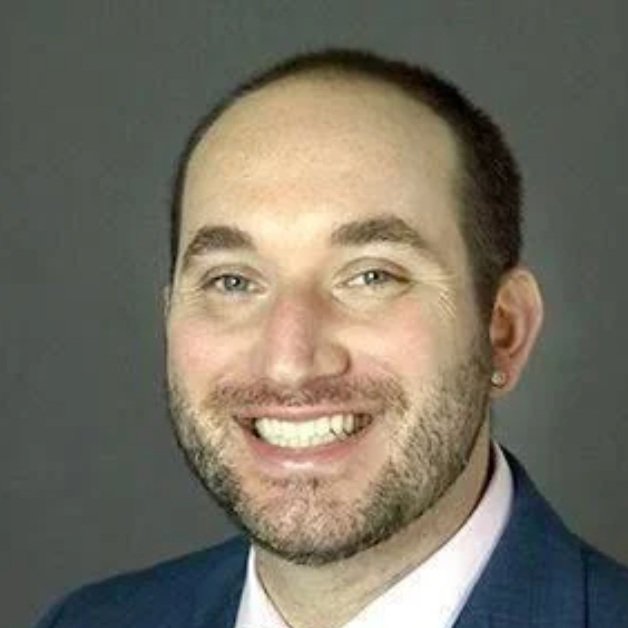Read about our Panelists and Their Work Below:
-
Dr. Desiree Jones is a President’s Postdoctoral Fellow in the Department of Psychology. She received her PhD in Psychological Sciences from the University of Texas at Dallas in 2023. Desi’s research focuses on how autistic people are perceived by their peers, how these perceptions differ for autistic people from underrepresented groups, and how to reduce stigma among non-autistic people. She is also interested in using qualitative methods to better understand the experiences of autistic people with intersecting identities, with an emphasis on Black autistic people.
Intersectional Experiences of Stigma Among Black and White Autistic Adults
Non-autistic people often form negative first impressions of autistic people and report a reduced interest in interacting with them. For autistic people who hold multiple marginalized identities, such as Black autistic people, there may be a compounding effect of stigma based on both race and disability, increasing the risk of adverse social outcomes for these individuals. Despite this elevated risk, people from racial and ethnic minority backgrounds have been historically underrepresented among autism research studies, so little is known about the presentation and impact of stigma on Black autistic people. This study sought to better characterize the social experiences of autistic adults, and how these experiences differ as a function of racial and gender identity. Here, Black and White autistic adults (N = 32, 50% Black, 50% White) completed a semi-structured interview regarding their experiences of discrimination, acceptance, and exclusion. Interviews were transcribed and qualitative data were analyzed using thematic analysis, with results revealing that while many experiences of stigma are specific to one’s race or gender identity, Black and White autistic adults experience several commonalities in their social experiences. In particular, autistic adults across racial and gender identities reported that stigma and inaccessible social structures often contributed to their social difficulties, with many choosing to withdraw from social engagements to avoid potential stress, burnout, and meltdowns. These results suggest that while holding multiple marginalized identities may moderate the nature of stigma for autistic adults, the impact of this stigma may present similarly across identities.
-
Prof. Brandon Stump joined the Cleveland State University College of Law in fall 2020, and has taught Legal Writing, Advanced Brief Writing, Scholarly Writing, and Labor Law. This is his eighth year teaching.
Stump began his legal career in Detroit, Michigan, where he worked as a civil rights attorney representing victims of police brutality with Goodman & Hurwitz and later as a research attorney for the Michigan Court of Appeals. After five years of practice, following a lifelong interest in literature, art, and writing, Stump returned to school to earn an MFA in Creative Writing - Fiction from the University of New Orleans. As part of his creative writing residencies, Stump studied literature and participated in writers' workshops in Cork, Ireland for two summers, exploring the country for inspiration.
Stump appears to be the first openly Autistic law professor to ever publish a law review article: "Allowing Autistic Academics the Freedom to Be Autistic: The ADA and a Neurodiverse Future in Pennsylvania and Beyond," 57 Duq. L. Rev. 92 (2019). Recently, Stump published “Can Superman Save the Supreme Court after Dobbs? Using Analogical Reasoning to Teach the American People the Superpower of Stare Decisis,” 72 Clev. St. L. Rev. 203 (2023). One of Stump's primary goals is to change the understanding of diversity in higher education to include disability and to add intersectional disabled perspectives to the canon. In his classroom he incorporates literature, theater, and critical theory.
Read the abstract for his recent work “You Better Werk: The Viability of a Labor Union for the Cast of RuPaul’s Drag Race” here
-
Hannah Morton is an AuDHD postdoctoral fellow and licensed psychologist at Oregon Health & Science University. She received her PhD in Clinical Psychology from Binghamton University in 2021. Her NIH-funded research examines differences in neurocognitive development and environmental stressors that impact social expectations and outcomes for autistic and ADHD youth and young adults. Hannah also collaborates internationally with researchers and community partners prioritizing methodological accessibility and inclusivity for neurodivergent populations. She is Co-Chair of the ABCT Autism Spectrum and Developmental Disabilities SIG and on the leadership team for the INSAR Autism PROMnet SIG.
Abstract: Including Autistic Self-Report in Research
Autistic people have important and unique perspectives about their experiences (Ferenc et al., 2021; Keith et al., 2019; Kenworth et al., 2022; Santore et al., 2020). Yet, autism research has historically relied on proxy reports (i.e., from parents, teachers, or other adults) and also excluded autistic people with varying verbal and communication support needs (DePape & Lindsay, 2016; Nicolaidis et al., 2019). Dr. Morton will share results from a systematic review on the use of autistic self-reported outcome measurement within recent autism literature. Findings highlight notable variability in the inclusion of autistic perspectives according to article topic, and journal field. Further, autistic participants who provided their own self report were largely White, non-Hispanic boys or men without intellectual disability. Ongoing efforts to increase the utilization of autistic self-report within studies are needed, and especially in the context of demographic variables; namely those younger in age, with lower IQ, and who identify across a heterogeneous breadth of gender, race/ethnicity, and SES identities. Capturing self-reported autistic perspectives, both within and across these demographic differences, is a crucial first step toward more robust literature syntheses that parse intersectional identities and enhance understanding of myriad autistic experiences.


